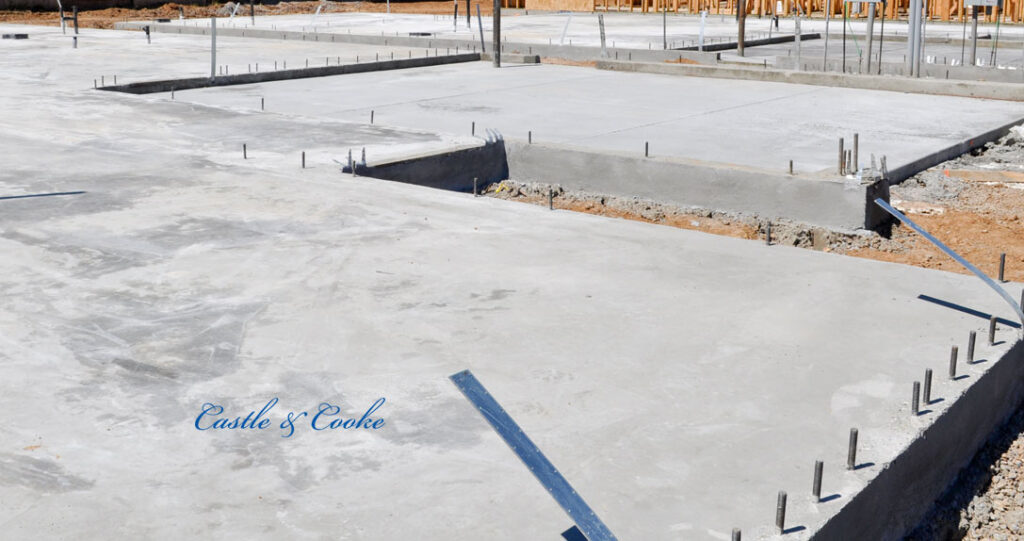A strong foundation is the key to a sturdy house. And Castle & Cooke builds every one of our unique homes on a trustworthy foundation. We accomplish this by adhering to a specific set of requirements for foundation materials and techniques. Here are some of the things we do to ensure the quality of the foundation in a new Castle & Cooke home:
Concrete Foundations
Before any concrete is poured for a home’s foundation and slab, the underlying soil is pre-treated for termites. As the old saying goes, “An ounce of prevention is worth a pound of cure.”
The concrete used in our foundations has a strength rating of 3,500 psi (pounds per square inch) and a .53 water-to-cement ratio. Many builders use only 2,500 psi or 3,000 psi concrete.
Steel reinforcing bar (rebar) used in foundations is intended to be positioned in the middle of the concrete to provide additional strength. Most contractors lay the rebar on the ground and then pull it up with hooks as the concrete is being poured. The problem with this method is that the person pulling the rebar up is also stepping on it as they move around the slab, causing the rebar to end up at the bottom of the slab where it is essentially useless as a reinforcing system. Castle & Cooke on the other hand utilizes “dobies,” small supports that suspend the rebar above the ground in its proper position as the concrete is poured, resulting in a stronger foundation.
We require “Moistop Ultra 10” 10-mil polyethylene vapor barrier sheeting under the slab. This material is a virgin, non-recycled product for better strength. All joints between vapor barrier sheets are seamed and any penetrations are taped.
All concrete delivered to the job site is slump tested at the site.
“Mix tickets” are required for all concrete delivered to the site to ensure that it meets design specifications.
A concrete sample is taken from each foundation pour and analyzed for comprehensive strength by a concrete testing company. Break tests are conducted after 7 days of cure time and again after 28 days of cure time to ensure a strength of 3,500 psi.
Pressure-treated wood sills are anchored into the concrete foundation to secure all exterior door thresholds properly.
Concrete Flatwork (driveways, walks, porches & patios)
The ground beneath our flatwork is properly prepared, which means it has been moistened and compacted correctly prior to pouring the concrete. We take great pride in our flatwork and you’ll be able to tell the difference by the square and true edges as well as the finish.



